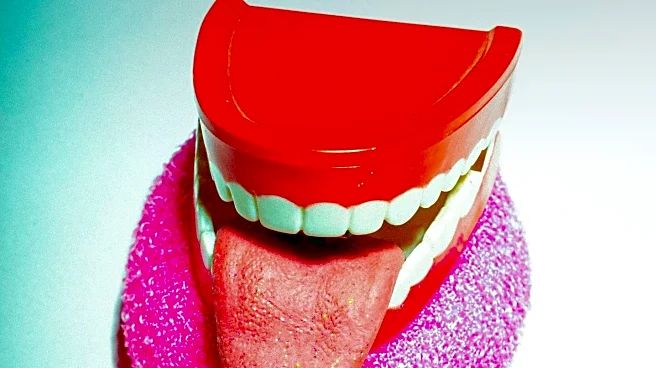What's Happening?
Recent research has identified a potential link between gum disease and subtle brain changes, specifically white matter hyperintensities, which are bright areas seen on brain scans indicating damage to
nerve fibers. These changes can affect memory, balance, coordination, and increase stroke risk. The study, published in Neurology Open Access, involved 1,143 adults with an average age of 77, revealing that those with gum disease had a higher prevalence of white matter hyperintensities. The findings suggest that oral health may play a significant role in brain health, although the study did not establish a direct causal relationship.
Why It's Important?
The implications of this study are significant for public health, as it suggests that maintaining oral health could be crucial for preventing brain-related issues in older adults. With gum disease being preventable and treatable, these findings could lead to new strategies for reducing cerebral small vessel disease by targeting oral inflammation. This research adds to the growing evidence that dental care is not only important for oral health but also for long-term brain health, potentially influencing healthcare policies and practices.
What's Next?
Further research is needed to confirm the link between gum disease and brain health, and to explore the mechanisms behind this association. If future studies validate these findings, it could lead to new preventive measures in healthcare, focusing on oral health as a means to support brain health. This could also prompt healthcare providers to emphasize dental care in their treatment plans for older adults, potentially reducing the incidence of brain-related diseases.
Beyond the Headlines
The study highlights an often-overlooked aspect of health, suggesting that oral health may have broader implications than previously understood. This could lead to a shift in how healthcare systems approach preventive care, integrating dental health more closely with overall health strategies. Additionally, it raises ethical considerations about access to dental care, as disparities in oral health could translate into disparities in brain health outcomes.








